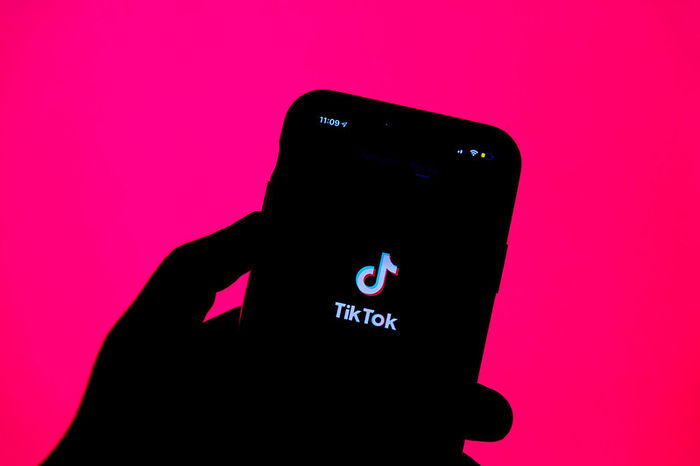Stop putting words in my mouth: Exploring AI covers
Are AI covers a wholesome avenue for fans to express their joy or a twisted game slowly stripping artists of creative control?

Imagine if you could get your favourite artist to sing anything you desired at the click of a button. Create a collaboration between Billie Eilish and Prince. Have Lana Del Rey sing ‘Skyfall’ by Adele. Thanks to artificial intelligence, all of this has become a reality and the possibilities are endless. Since spring, my TikTok has been flooded with infinite permutations of artists, styles and covers, all generated with almost unnerving accuracy by AI.
Now a pervasive force in our lives, all industries have been forced to confront the complex implications of AI, from the addition of annoying features (I’m looking at you, Snapchat AI) to the disturbing dilution of labour rights among Hollywood writers and actors. With Hozier recently telling BBC Newsnight that he would be willing to strike over the threat that AI poses to the music industry, the discussion around AI-generated covers has come to the forefront of media discourse.
The potential of AI covers was first fully realised in April when a song mimicking the voices of Drake and the Weeknd called ‘Heart on My Sleeve’ garnered 629,439 streams on Spotify and 9 million views on TikTok before promptly being pulled from all platforms. Undeterred by the eeriness of these songs, fans have flooded comment sections with endless requests for AI covers, which have continued to proliferate. It raises the question: is this a wholesome avenue for fans to express their joy or a twisted game slowly stripping artists of creative control?
“It is up to key players within the music industry whether they resign to inevitable change or fight”
Although I gain some satisfaction from the retributive justice of Taylor Swift rapping Ye’s verses and am amused by how pop music must continue to reckon with Glee covers in 2023, AI covers present uncharted territory and raise questions for both record labels and lawmakers. Copyright law, whose framework was designed with only the protection of humans in mind, does not address AI. Therefore, it is up to key players within the music industry whether they resign to inevitable change or fight.
In response to ‘Heart on My Sleeve’, Universal Music Group (UMG) initially led the fight, on behalf of both artists and fans, to stop such covers being made. Taking a strong moral stance, UMG called for streaming services to choose between “human creative expression” or “deep fakes [and] fraud”.
“Some artists have embraced this technological revolution”
Disagreeing with UMG’s black and white approach, some artists have embraced this technological revolution, with Grimes offering to split royalties 50/50 on any commercially successful record using her voice. Calling for further integration of technology and music, Grimes has capitalised on this phenomenon through a specially created Spotify profile, “GrimesAI”, for fan-made projects. David Guetta, who, in a set earlier this year, used ChatGPT to create a track mimicking Eminem, sees AI as an innovative tool. Guetta told Rolling Stone that, despite advancements in AI, he has faith that the subtleties of human taste will prevail. So, even if Drake’s voice can be convincingly mimicked, his unique stylistic choices will continue to set him apart.
Grimes has offered to split royalties 50/50 on any commercially successful record using her voiceTwitter (@Grimezsz)I'll split 50% royalties on any successful AI generated song that uses my voice. Same deal as I would with any artist i collab with. Feel free to use my voice without penalty. I have no label and no legal bindings. pic.twitter.com/KIY60B5uqt
- 𝔊𝔯𝔦𝔪𝔢𝔰 (@Grimezsz) April 24, 2023
Moreover, this technology could allow recognised artists to benefit from hits they had no involvement in making. Despite UMG’s initially strong stance, this potential to capitalise on the demand for endless content proved too enticing: Google and UMG are now in talks about how to licence the voices of artists.
This potential source of income, however, has not eased concerns within the wider music industry that, as technology improves and AI covers become less distinguishable from real performances, streaming services may leverage their power against artists. Ultimately, AI covers contribute to a problem already facing the industry: oversaturation. Whether people are interested in listening to hundreds of songs sung in Harry Styles’ voice or not, AI covers certainly make it harder for emerging artists to stand out among the 49,000 songs already uploaded to Spotify every day.
Once the novelty of this new technology wears off, who knows what will remain? Will AI create an impenetrable sea of voice cloning drowning out those unable to rely on an established brand? Or maybe, after the honeymoon phase, the gimmicky sense of wonder will fade, the synthetic voices ultimately ringing hollow, and these covers will enrich our appreciation of the originality and authenticity that only our favourite artists can provide.
 Comment / Cambridge is right to scrap its state school target1 May 2024
Comment / Cambridge is right to scrap its state school target1 May 2024 News / Academics call for Cambridge to drop investigation into ‘race realist’ fellow2 May 2024
News / Academics call for Cambridge to drop investigation into ‘race realist’ fellow2 May 2024 Sport / The diary of a Bumps rower24 April 2024
Sport / The diary of a Bumps rower24 April 2024 Features / Will May Balls ever be sustainable?30 April 2024
Features / Will May Balls ever be sustainable?30 April 2024 News / Emmanuel College cuts ties with ‘race-realist’ fellow19 April 2024
News / Emmanuel College cuts ties with ‘race-realist’ fellow19 April 2024





